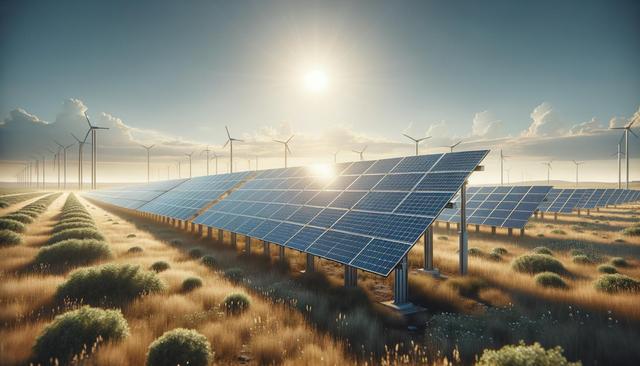Understanding How Solar Power Systems Work
Solar power systems operate by capturing sunlight and converting it into usable electricity for homes and businesses. At the core of these systems are solar panels, which contain photovoltaic (PV) cells made of semiconductor materials. When sunlight strikes these cells, it generates a flow of electricity — a process known as the photovoltaic effect. This direct current (DC) power is then converted into alternating current (AC) electricity by an inverter, making it suitable for use in standard household appliances.
Modern solar power systems often include components like:
- Solar panels mounted on rooftops or ground structures
- Inverters that convert DC to AC
- Monitoring systems to track energy production
- Battery storage (optional) for excess energy
By combining these elements, solar PV installations provide a reliable source of solar power energy that reduces reliance on the traditional power grid. This not only helps homeowners cut down on utility bills but also contributes to environmental sustainability by harnessing clean sun energy.
Financial Benefits of Going Solar
One of the most compelling reasons homeowners are investing in solar panels is the potential for long-term financial savings. While the initial cost of installation can seem high, the return on investment becomes evident over time. Many regions offer incentives, rebates, and tax credits that significantly reduce upfront costs, making solar power systems more accessible.
Here are a few financial advantages to consider:
- Reduced monthly electricity bills
- Increased home value due to energy-efficient upgrades
- Eligibility for federal or local solar incentives
- Protection against rising utility rates
Over the lifespan of a solar PV system, which typically ranges from 25 to 30 years, homeowners can save thousands of dollars in energy costs. With proper maintenance, the system continues to generate solar power energy efficiently, making the initial investment a practical choice for many.
Environmental Impact and Sustainability
Beyond financial savings, solar energy offers substantial environmental benefits. Traditional electricity generation often relies on fossil fuels, which emit greenhouse gases and contribute to climate change. In contrast, solar power systems produce clean, renewable energy with zero emissions during operation.
Using sun energy helps reduce your household’s carbon footprint and supports broader efforts to transition toward sustainable energy solutions. Some of the positive environmental impacts include:
- Decreased air pollution from reduced fossil fuel use
- Lower greenhouse gas emissions
- Conservation of water resources used in conventional power generation
- Promotion of energy independence
As communities and governments place greater emphasis on environmental responsibility, adopting solar PV solutions becomes a meaningful way for individuals to contribute to a cleaner future.
Technological Advancements and Efficiency
The solar industry has made significant strides in technology, improving the efficiency and affordability of solar panels. Innovations in panel design, materials, and installation techniques have led to systems that can capture more solar power energy even in less-than-ideal conditions, such as cloudy weather or limited roof space.
Advancements worth noting include:
- High-efficiency monocrystalline panels
- Smart inverters with real-time energy monitoring
- Integrated battery storage for energy resilience
- Flexible or thin-film panels for unconventional surfaces
These improvements make solar power systems more adaptable to a range of home designs and energy needs. Whether you live in a sunny region or an area with variable weather, modern solar PV systems offer a level of performance that makes switching to solar increasingly practical.
Why Homeowners Are Making the Switch
More homeowners are choosing to invest in solar panels for a combination of practical and ethical reasons. As energy costs rise and awareness of environmental issues grows, solar power presents a solution that is both economically and socially responsible.
Key motivations include:
- Desire to reduce long-term energy expenses
- Commitment to reducing environmental impact
- Interest in increasing property value
- Access to financial incentives and rebates
In recent years, the number of residential solar installations has grown steadily, demonstrating a shift in how people view energy consumption. With reliable performance, improved affordability, and wide availability, solar power systems are becoming a viable option for households across various regions. By tapping into the power of sun energy, homeowners are taking control of their energy future in a sustainable way.
Conclusion: Weighing the Value of Solar Energy
For homeowners evaluating their energy options, solar power offers a compelling mix of economic, environmental, and technological benefits. Solar panels and solar PV systems are no longer just a trend — they represent a practical step toward energy independence and sustainability. Whether your priority is cutting utility bills or contributing to a greener planet, solar power energy can deliver lasting value.
As you consider whether solar is right for your home, it’s important to understand your energy consumption, available incentives, and installation options. With the right setup, sun energy can provide a reliable and efficient energy solution that aligns with both your values and your financial goals. Making the switch to solar might not be for everyone, but for many homeowners, it’s a well-regarded choice that continues to gain momentum.




Leave a Reply